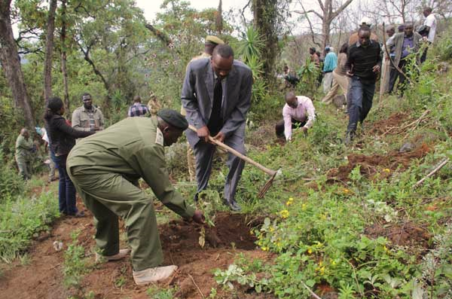The Kenya horticulture industry has made strong commitments to sustainability. Companies that stand out in the area of sustainability address both knowledge and compliance gaps. They have evolved from knowing to doing and from compliance to competitive advantage.
Certification validates sustainability claims, eliminates the possibility of “greenwashing,” and provides an organized and focused process to refine and increase the sustainability of businesses in horticulture.
In the context of today’s economy this is a major justification for the expenditures necessary to undergo the certification process. The process is not overly difficult, time-consuming, or hugely expensive. Secondly, the cost will only increase over time. Adopting certification provides a strategic operating and promotional advantage over competitors who delay adaptation.
External independent auditors regularly visit the farms to verify that they comply with strict environmental and chemical regulations and that their health and social policies meet the highest standards.
Farms are also audited and certified on the physical and mental wellbeing of their employees. This is in cognizance of the fact that next to fair wages, additional benefits are important in order to create a healthy and positive work environment. Regular training and education are also provided. Necessary committees and empowerment programmes are in place in all farms.
Kenya growers and exporters are in compliance with all international voluntary standards.

Chemicals and pesticides use
Through this synergetic combination of chemical and natural agents, companies comply with market regulations on chemicals and pesticides. In particular, they avoid substances that are harmful to wildlife, including pollinators. Moreover, they avoid chemicals that will linger for a prolonged length of time, ensuring no residue enters the food chain. They also exclude chemicals that can affect aquatic life, the ozone layer, or mammalian life.
Kenya farms are focused on reduction in the use of chemicals and their safe use. In order to minimize their impact on the environment, farms are committed to pursuing the greenest and most environmentally friendly approach possible. In order to do so, they have adopted the idea of Integrated Pest Management (IPM) and Integrated Crop Management (ICM). As such, pesticides are only used during the stages of growth, when the plants are at their most vulnerable and susceptible to disease and pest. Outside of this period, they use the most environmentally friendly biological weapon to fight off pests: insects. These biological agents predate on the harmful pests that affect the flowers, significantly reducing the need for chemicals.
Water stewardship
Growers are keen on Water Management. Farms have adopted irrigation systems that simply fed back and recycle water. The cleaning of the packing house or office ends up directly in the farm’s own wetland. The wetland not only purifies the water and releases it back into the environment. Farms have also installed water collection systems to allow rainwater to flow into the irrigation system.
Energy
Farms also pay close attention to energy use, with most utilizing solar energy for most processes at the farm. Produce is grown in natural conditions under the sun, with greenhouses needing no artificial heating. Thus, reducing carbon emission to the minimal.

For More Information, Click Here

